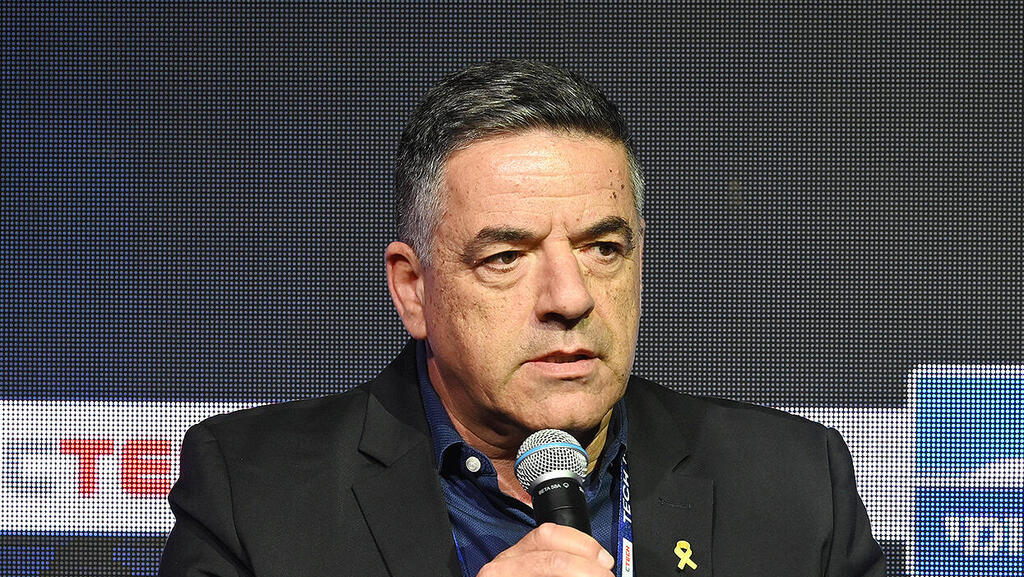
Tech TLV
"We adapted Iron Dome to intercept UAVs five years ago"
Amikam Norkin, former Air Force Commander and Managing Partner at defense tech fund Ace Capital, spoke at Calcalist and Bank Leumi’s Tech TLV conference about investing in the military and defense tech.
"Israel’s strategic situation has changed in the last six months. We will face security challenges and must prioritize and allocate resources, and deploy them over a decade to create certainty and stability, which enhances defense agreements," said former Israeli Air Force commander, retired general and Ace Capital managing partner Amikam Norkin in conversation with Calcalist’s Sophie Shulman during Calcalist and Bank Leumi’s Tech TLV conference. Norkin was responding to a question about significant additions to the defense budget, as recommended by the Nagel Commission, which he was a member of.
"We all understand that the defense budget is a leading consideration that affects both Israeli life and the economy. In hindsight, it was wise to allow the commission enough time to submit its conclusions so they could already influence the 2025 budget. What we’ve experienced in the past six months, despite our growing adaptation to rapid changes, is a massive strategic shift. Six months ago, the military fought on the ground in Gaza. We've struck Hezbollah severely, ensured Syria will not return to its previous state, destroyed the Syrian army, and engaged directly with Iran twice. We’ve also carried out repeated strikes in Yemen. The commission established the defense budget priorities to be deployed over the coming decade."
Do you think military paradigms have shifted after seeing how a UAV, of no great quality, can pose a threat to the world’s strongest air force?
"Israel is fighting in a broad range of scenarios, with significant differences between Gaza, Lebanon, Yemen, and Iran. It’s true that the aerial dimension is increasingly relevant. What the IDF achieved in Gaza was a highly advanced operation combining ground and air forces with high-quality intelligence, reflected in the rapid destruction of enemy targets. In Lebanon, we saw a primarily aerial campaign that achieved military dominance over Hezbollah. Simultaneously, we face drones, cruise missiles, and UAVs. We anticipated this – \[their use\] was greatly accelerated by the Russia-Ukraine war. For example, we adapted Iron Dome to intercept UAVs five years ago, most of which have been successfully intercepted.
"Detection and identification abilities undoubtedly introduce a new dimension to the battlefield, though the damage has not been high. As long as the war is waged in urban settings, we need heavy bombs and intense firepower. The aerial dimension, whether smart UAVs or aerial forces, is becoming central. Militaries worldwide are dealing with multi-dimensional warfare."
Related articles:
Is defense tech the main focus, or are there other aspects?
"Tensions in various global regions, not just the Middle East, are driving governments to increase defense budgets. More funding is directed to security and defense industries. We take pride in our defense industry, which is integral to national resilience. At the same time, there is a desire to accelerate development and bring technologies to the battlefield faster. In traditional industries, this often takes longer. In this context, Israel serves as a good example, as we maintain a relatively short cycle from operational need to solution. The American system, by contrast, is much longer and more cumbersome. Governments, defense ministries, and armies are starting to integrate startups into defense development. This is evident in Israel with the activities of the Ministry of Defense’s Directorate of Defense R&D (DDR&D)."
Can this approach be sustained in the long-term?
"Several vectors intersect here: the need for greater security, the need to achieve it faster and cheaper, and the realization among investors that they must invest in the local market. The go-to-market process is changing. There are more customers, and several factors which separate defense from high-tech. First, strong companies that show increased sales to the IDF due to the war must also succeed globally. Otherwise, what we’re experiencing now in 2024 will only be hype. We believe global defense investment will continue for many years, and the industry will grow, but this industry requires expertise. Investing in defense demands knowledge and professionalism. Those who fail to understand the processes, operational needs of the battlefield, how to nurture an operational product and approach governments to go-to-market will struggle."
Are there enough startups with interesting technology?
"That was our dilemma when we started. We considered focusing on space since aerospace and aviation will accompany almost every aspect of our lives. However, we realized there aren’t enough space companies, particularly on the civilian side. Therefore, we’re now looking at aviation and aerospace. Over the past five months, we’ve reviewed over 100 companies. We want to influence and innovate in aerospace and defense. Israelis have much to contribute, both technologically and in operational knowledge, as most of us serve in the military and understand its needs. We want to encourage an ecosystem alongside the large companies already active."
Could it grow as big as cyber?
"It could grow, but there are different characteristics between cyber and aerospace. I would like to see the state encourage technological development in space. While we’re advancing on the defense side of space, civilian applications are lagging. If we don’t act, others will surpass us."
